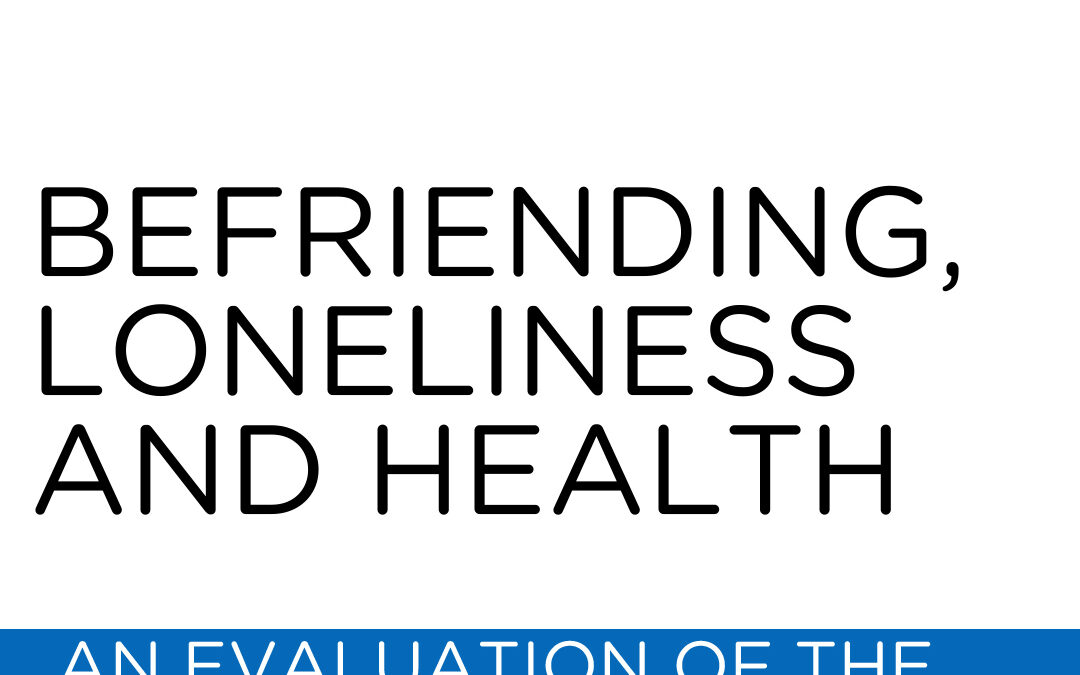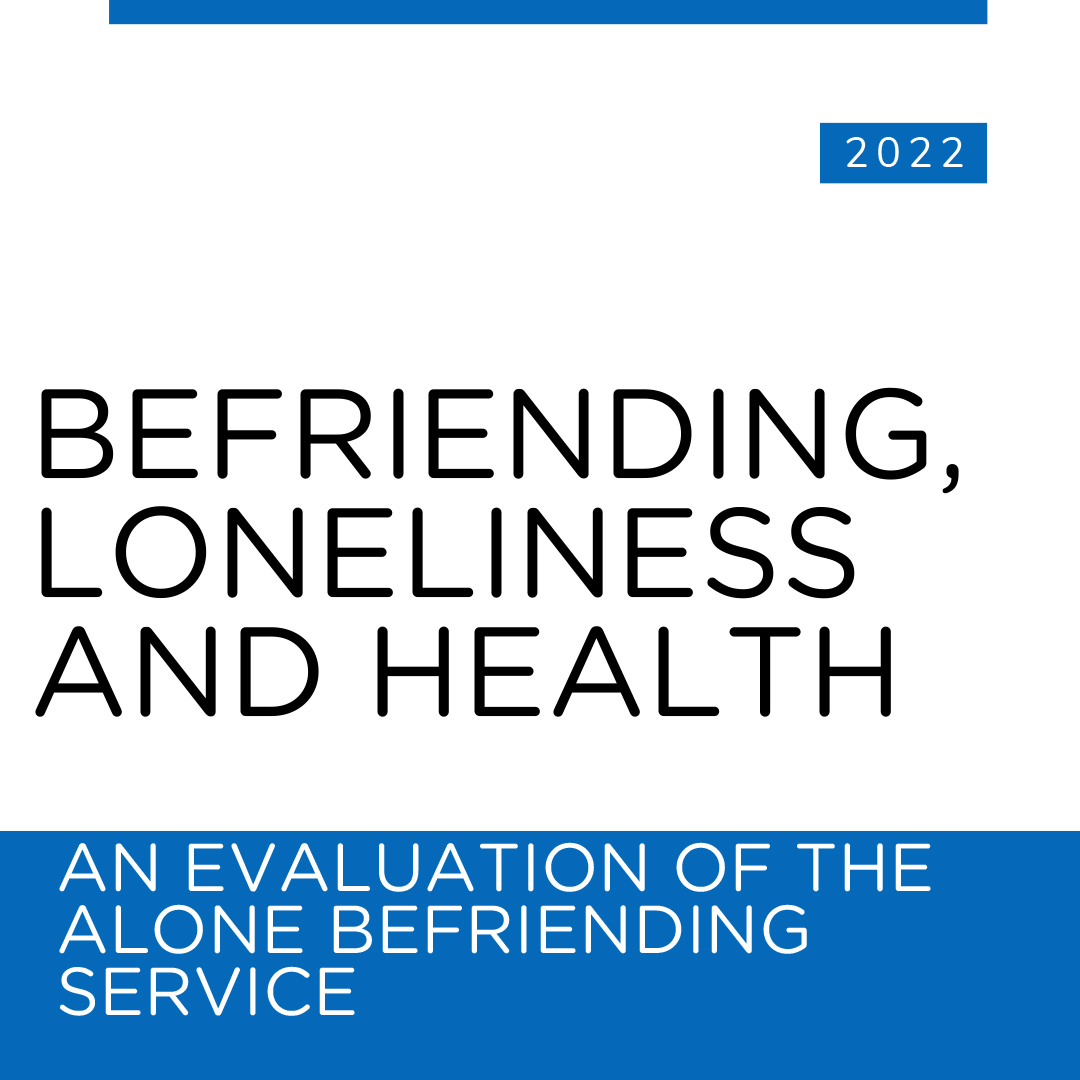This research report evaluates the effects of ALONE’s Visitation Befriending and Support service on reducing the negative impact of loneliness in addition to evaluating its impact on health, specifically health-related quality of life and cognitive function. This project was funded by the Health Research Board and ALONE, although the research team were independent of ALONE.
The study had two components: the first used a longitudinal design, and 86 older people aged between 60 and 94, with an average age of 75 years, took part. Participants were assessed a total of 13 times during the study. All participants were new users of the ALONE Support & Befriending service. The report also includes a qualitative study whereby older people and and volunteers took part in interviews.
Results indicate that the service is highly valued and recognises it has a clear positive impact both directly on health, in that receiving the befriending intervention reduced the overall decline in health over time, and indirectly, by reducing the negative impact of loneliness on health over time. The study also identified four different pathways through which support & befriending services might impact on health. These include: volunteers providing support for positive health behaviours, supporting emotional wellbeing, facilitating access to healthcare and health information, and promoting mental stimulation and cognitive engagement.
Recommendations from the report include continuing the service due to its health benefits, optimising the service by incorporating activities like gentle exercise and conducting further research to confirm the pathways through which befriending improves health. Overall conclusions from this project indicate that while befriending services are often aimed at individuals who express feelings of loneliness, they may also be useful for those experiencing poor health. In particular, they may be most useful for those experiencing both loneliness and poor health.



